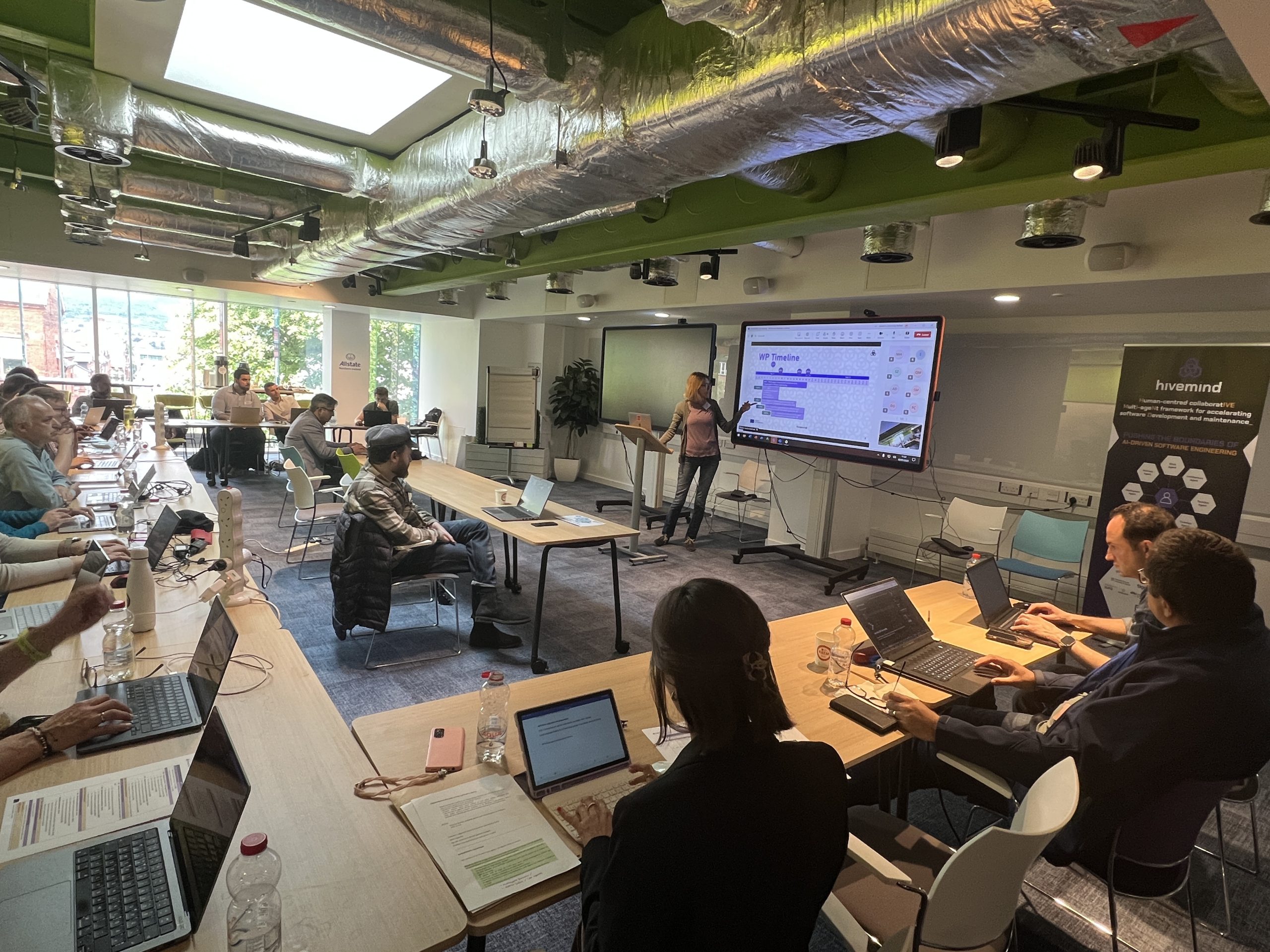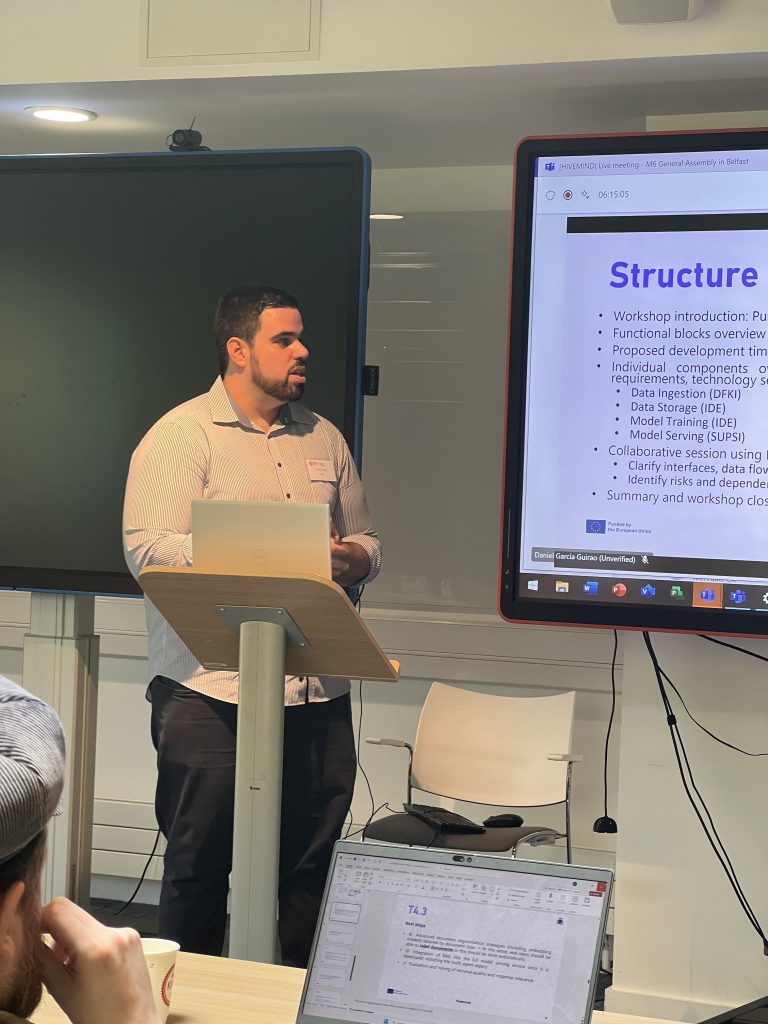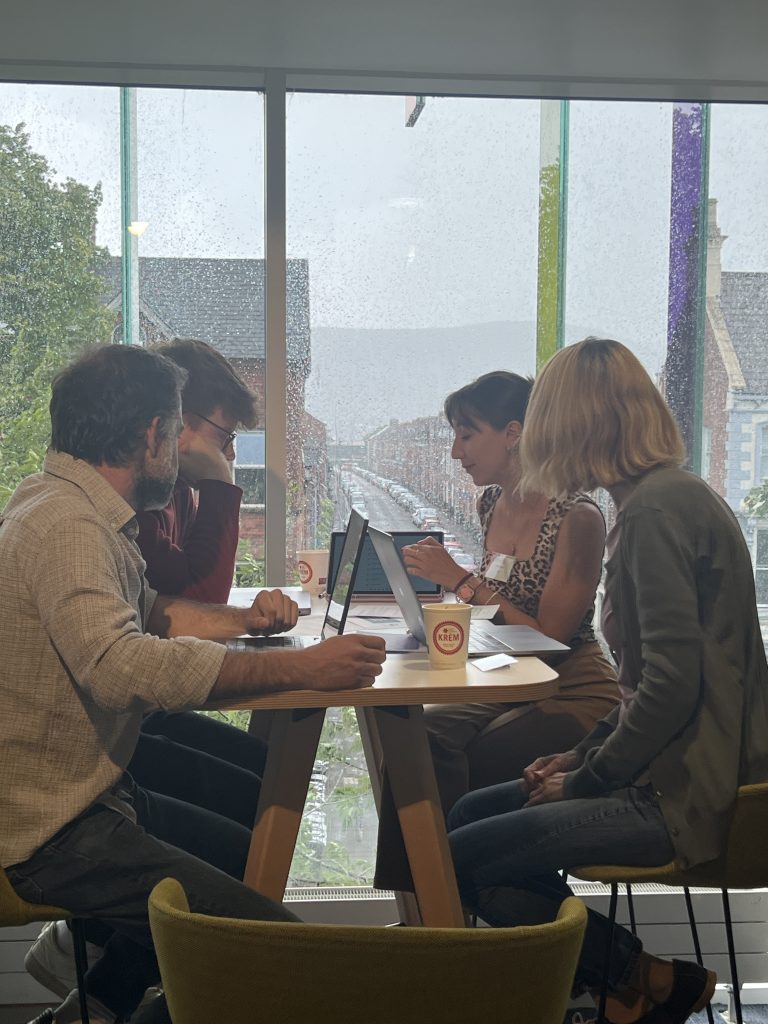The HIVEMIND consortium met on 2-3 July in Belfast for a General Assembly and technical workshop hosted by Queen’s University Belfast. The two-day meeting provided a structured checkpoint for reviewing progress, refining the architecture, and synchronising tasks across work packages.
Progress review and technical coordination
The first day was dedicated to reviewing the current state of the project’s core work packages. Presentations were delivered by IDENER, DFKI, SUPSI and others, covering progress in project management, infrastructure deployment, requirements gathering, data pipelines, and the initial work on multi-agent systems.
A technical workshop in the afternoon centred on the architecture of HIVEMIND’s modular framework. The discussion focused on the design and interaction of the system’s functional blocks, spanning data collection, storage, processing, and deployment strategies, contributing to the broader configuration of the AI-driven ecosystem the project aims to deliver.
The day wrapped up with a social evening at the iconic Titanic Museum, strengthening team bonds for the road ahead.

Refining data flows and use case integration
Day two began with a practical session on end-user data availability, led by DFKI. The discussion examined available data types, common requirements, and current limitations, bringing together technology developers and use case partners to better define what is needed to support model training and testing. Particular attention was given to LDS onboarding status across partners.


The final session reviewed updates on Communication, Dissemination, and Exploitation. Topics included the current state of the website, early social media performance, intellectual property plans, the ongoing development of the HIVEMIND communication kit, and upcoming opportunities for collaboration and networking.
As the project transitions into its next phase, Daniel Garcia, HIVEMIND project coordinator, highlighted the shared sense of purpose across the consortium:
“With requirements collection nearing completion, the HIVEMIND consortium is united, energised, and fully aligned as we move into the development phase. Together, we’re committed to building impactful AI agents that will transform end-to-end software engineering.”
Looking ahead
The Belfast meeting helped consolidate technical priorities and ensured coherence across HIVEMIND’s work packages, from data processing and infrastructure to multi-agent system design. The consortium now moves forward with clearer alignment and updated targets for the next project phase.